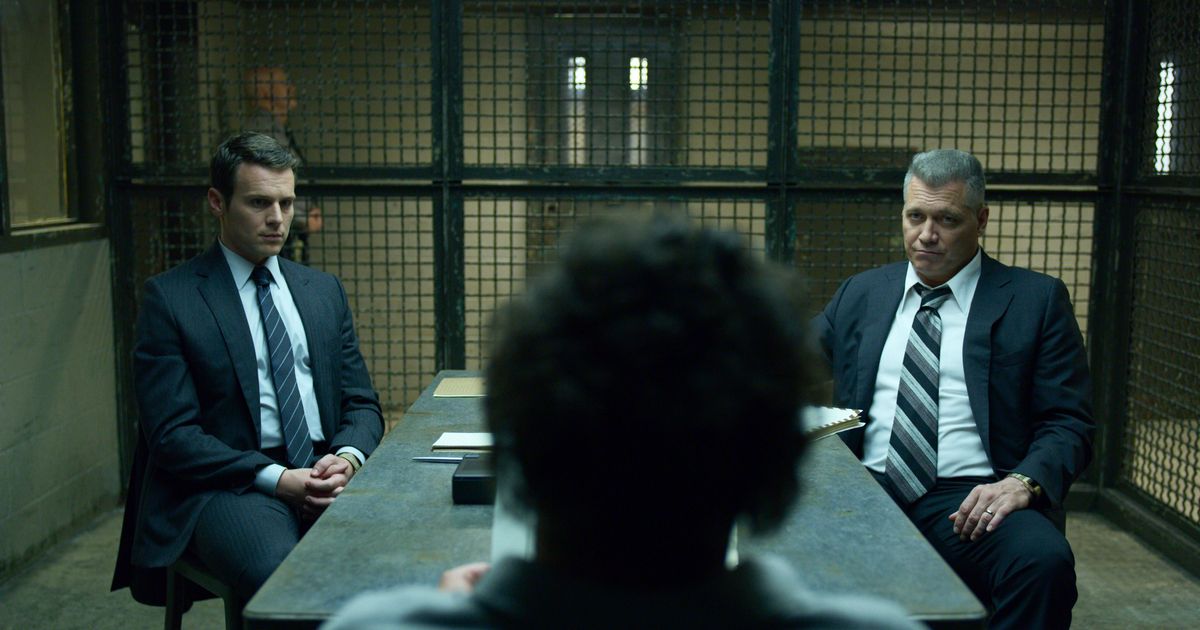The new season of Mindhunter is being touted as a David Fincher undertaking simply because it becomes closing season—once more promoting us on the promise of that auteur’s grimly analytical style, his penchant for selecting on the scabs of crusted-over stories of social deviance, his knack for shaping boilerplate writing into gemlike highbrow battles that knock his characters’ alliances back and forth.
So be it. Fincher’s paintings—along with that of creator Joe Penhall and a talented writing team—once again set the template for this beguiling, riveting display, based on the e-book Mindhunter: Inside the FBI’s Elite Serial Crime Unit by using former agent John Douglas and monitoring the professional and personal lives of the FBI’s Behavioral Sciences Unit, or BSU (i.E. The serial killer beat). It’s any other one of those procedurals approximately a weirdo genius analyst: Holden Ford, played by Jonathan Groff and based on Douglas (who changed into also a model for Jack Crawford, of Thomas Harris’s Hannibal Lecter books). You recognize the type: bookish, self-confident, frustratingly intuitive, and a little too unpredictable in pursuing his ideas.

This season starts where season one ended: with Ford having a panic assault brought about with the aid of a meeting with captivating serial killer Ed Kemper. The others on his crew, mainly Bill Tench (Holt McCallany) and Dr. Wendy Carr (Anna Torv), can choose the slack. They’ve been given a new boss, Assistant Director Gunn (Michael Cerveris), who wants to expand the unit but also thinks Ford wishes for babysitters. As Fincher deftly sets up in the first three episodes of the season, they’ve additionally been given different problems mounting: a new group dynamic marred via mistrust; the beginnings of an idea-scary thread involving Tench’s followed son, Brian; continued interest within the BTK killer (whose presence has been hinted at when you consider that closing season); and what is going to offer the real meat of the season: the Atlanta infant murders, which rocked that town from 1979 to 1981 and amounted to over 28 deaths.
Truthfully, the ones establishing episodes can be a bit stupid, with agreements made and understandings reached over the direction of several irritating, however, somehow, vacant scenes. But while it works, because it largely does, looking at Mindhunter in no way seems like painting, even when the display’s at its maximum, blandly expositional. Instead, the series is intently keyed into the rhythms of this peculiar activity, balancing ongoing studies into the minds of convicted killers with the fresh thrills of energetic cases. This show is secure by bending its structure, wending its way through more than one ongoing killing spree—and a mountain of studies—without necessarily resolving them.
Mindhunter differs from most procedurals in that the bulk of its awful guys have already been stuck. That makes the stay crimes—the BTK murders or the heated scenario in Atlanta—sense by some means alien and disruptive, terrifying in their immediacy. There’s awesome anxiety to watching these researchers emerge from the back of their desks, bringing their theories and presuppositions into the world—particularly if those researchers are something like Ford, whom Groff performs with an infuriatingly suitable blankness and sincerity.
It takes one of the crew’s murderous interviewees to factor out that the records they’re collecting are skewed with the aid of the truth that their handiest subjects are murderers behind bars: folks who’ve made mistakes instead of folks who steer clear of arrest by way of adapting and changing their methods. Hence the hobby in outliers like season two-person Charles Manson, who didn’t devote his very own murders but did, like a number of the group’s different topics, understand how to control the media—or of the BTK killer, but to be stuck but growing in skill.
Capturing this global are pictures that appear photo best and neatly assembled, with their crusts reduced and no jelly spilling out. But Fincher’s masterful fashion template is more complicated than that. His “earth tones,” as I’ve seen them called—the shroud of cool blues and yellows he’s used inside his movies for a few years now—now and again verges on putrescent, instead of natural: cold, ashen, lifeless to the touch yet by hook or by crook alive to our curiosity. Andrew Dominick (director, most promisingly, of the 2007 western The Assassination of Jesse James via the Coward Robert Ford), who directs episodes four and five, takes Fincher’s warm-bloodless proceduralism and assuredly runs with it.
But then comes Karl Franklin__, the real megastar director of the season. He oversees its latter four episodes, which delve maximum absolutely into the Atlanta child murder instances. Franklin somehow unearths thematic sympathies in a topic that would feel incongruous on a show like this. I never thought how aggressively white the Bureau is, to the point that one convicted killer is taken aback to be interviewed by way of a black agent, and in no way thought even the show’s (knowing) humor in flirting, at one factor, with the idea of the lily-white and newly unmarried Holden Ford going out on a date with a black woman. These ironies are bullet factors in a larger tension that the season—Franklin’s episodes mainly—deftly rustles up and metes out with riveting persistence.
The race is, of course, at stake right here; when mothers of some of the disappearing black youngsters in Atlanta query Ford’s use of the word “profile,” the grievance is pointed. But this isn’t, despite this emphasis, a show about Ford and the FBI’s unwitting racism (although the show offers sufficient opportunity to gawk at all the above). Even as it reintroduces a promising black agent, Jim Barney (Albert Jones), the display is not predicated on the black agent, nor the other black characters, to take obligation for all the black expertise within the room.












